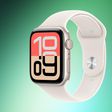A Look at Apple's 'Mastered for iTunes' Program and its Effect on Sound Quality
Earlier this year, Apple began revealing more information about its Mastered for iTunes program, requesting that music professionals supply Apple with higher-quality recordings as source material for the compressed tracks made available for sale through the iTunes Store. The higher-quality source material, processed according to Apple's guidelines, is being requested to allow Apple to create better-sounding tracks in the 256 kbps AAC format used for the iTunes Store.

Ars Technica takes a thorough look at the Mastered for iTunes program and whether it truly does make a difference to consumers. While the whole article is an interesting read on some of the technical details of audio formats and mastering and the varying perspectives of several music industry professionals, Ars' conclusion is that the Mastered for iTunes program can make a difference in quality of iTunes Store music.
We enlisted Chicago Mastering Service engineers Jason Ward and Bob Weston to help us out, both of whom were somewhat skeptical that any knob tweaking could result in a better iTunes experience. We came away from the process learning that it absolutely is possible to improve the quality of compressed iTunes Plus tracks with a little bit of work, that Apple's improved compression process does result in a better sound, and that 24/96 files aren't a good format for consumers.
Ars worked with a number of audio engineers on test projects comparing various combinations of original 24-bit, 96 kHz master recordings, uncompressed WAV files ripped from CDs, standard iTunes Store tracks, and tracks created by applying Apple's Mastered for iTunes process to the master recordings. In one example, a standard iTunes Store track sounded "boxy" or "muffled" compared to the original CD master WAV file, but after processing through Mastered for iTunes tools, the resulting track sounded significantly better and more "alive" on a subjective basis.
Part of the difficulty in assessing sound quality comes from the emotional response involved in how sounds register to human ears. Some differences in sound quality can be quantified using various tools to analyze the waveforms generated by different audio files, but the ultimate measure of sound quality lies with the human ears receiving and interpreting the sounds.
Nevertheless, Apple markets the Mastered for iTunes program as providing a path for musicians and music professionals to have iTunes Store content more closely match "music as the artist and sound engineer intended", and more and more musicians are taking advantage of the program in attempting to improve the quality of their music available through the world's most popular music vendor.
Popular Stories
Apple is not expected to release a standard iPhone 18 model this year, according to a growing number of reports that suggest the company is planning a significant change to its long-standing annual iPhone launch cycle.
Despite the immense success of the iPhone 17 in 2025, the iPhone 18 is not expected to arrive until the spring of 2027, leaving the iPhone 17 in the lineup as the latest...
Language learning app Duolingo has apparently been using the iPhone's Live Activity feature to display ads on the Lock Screen and the Dynamic Island, which violates Apple's design guidelines.
According to multiple reports on Reddit, the Duolingo app has been displaying an ad for a "Super offer," which is Duolingo's paid subscription option.
Apple's guidelines for Live Activity state that...
The company behind the BlackBerry-like Clicks Keyboard accessory for the iPhone today unveiled a new Android 16 smartphone called the Clicks Communicator.
The purpose-built device is designed to be used as a second phone alongside your iPhone, with the intended focus being communication over content consumption. It runs a custom Android launcher that offers a curated selection of messaging...
Apple plans to introduce a 12.9-inch MacBook in spring 2026, according to TrendForce.
In a press release this week, the Taiwanese research firm said this MacBook will be aimed at the entry-level to mid-range market, with "competitive pricing."
TrendForce did not share any further details about this MacBook, but the information that it shared lines up with several rumors about a more...
Apple today announced a number of updates to Apple Fitness+ and activity with the Apple Watch.
The key announcements include:
New Year limited-edition award: Users can win the award by closing all three Activity Rings for seven days in a row in January.
"Quit Quitting" Strava challenge: Available in Strava throughout January, users who log 12 workouts anytime in the month will win an ...
Apple is planning to release a low-cost MacBook in 2026, which will apparently compete with more affordable Chromebooks and Windows PCs. Apple's most affordable Mac right now is the $999 MacBook Air, and the upcoming low-cost MacBook is expected to be cheaper. Here's what we know about the low-cost MacBook so far.
Size
Rumors suggest the low-cost MacBook will have a display that's around 13 ...
Apple hasn't updated the Mac Pro since 2023, and according to recent rumors, there's no update coming in the near future. In fact, Apple might be finished with the Mac Pro.
Bloomberg recently said that the Mac Pro is "on the back burner" and has been "largely written off" by Apple. Apple apparently views the more compact Mac Studio as the ideal high-end pro-level desktop, and it has almost...























